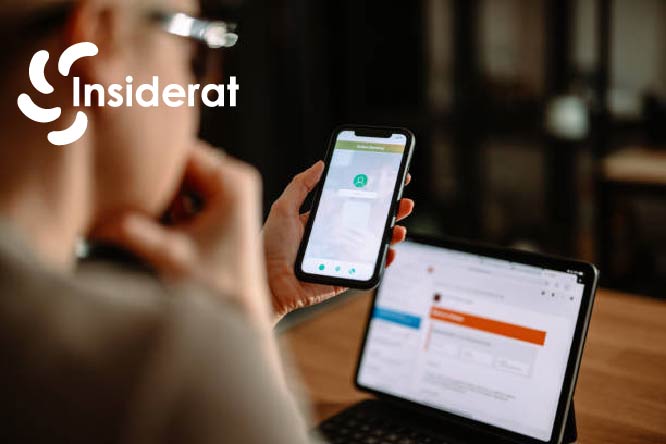why is it recommended that you avoid doing online banking on public wi-fi?
why is it recommended that you avoid doing online banking on public wi-fi? – In an era where convenience often trumps caution, the allure of accessing banking services on the go can lead many to overlook essential online banking security measures. Engaging in financial transactions over a public Wi-Fi network exposes users to an array of cyber threats, making safe online banking practices a non-negotiable discipline in the digital age. This segment sets the foundation for understanding why cybersecurity experts incessantly advise against such activities and offers foundational cybersecurity tips to help maintain the sanctity of one’s financial data. Join us as we unravel the reasons behind this crucial advice and how it can serve as the bedrock for securing your financial future.
Vulnerabilities of Public Wi-Fi
| Public Wi-Fi Vulnerability | Implications | Preventative Measures |
|---|---|---|
| Lack of Encryption | Unprotected data can be easily intercepted by unauthorized users. | Use of end-to-end encryption tools, like HTTPS connections. |
| Network Spoofing | Data theft and exposure to malicious networks posing as legitimate access points. | Verify the authenticity of the network before connecting; avoid auto-connecting to open Wi-Fi. |
| Gateway to Cyber Attacks | Exposure to malware and other cyber threats that compromise data and device integrity. | Keep software updated; install reputable antivirus software and a personal firewall. |
Ultimately, when handling sensitive information, such as during online banking or private communications, it becomes evident that the public Wi-Fi risks require users and service providers to maintain and adhere to stringent internet security protocols.
Risks of Online Banking on Public Wi-Fi
| Risk | Description | Consequences |
|---|---|---|
| Interception of Credentials | Attackers can capture usernames, passwords, and banking details transmitted over an unsecured network. | Loss of financial assets, identity theft, and unauthorized account access. |
| Eavesdropping | Cybercriminals employ snooping techniques to monitor and record data flowing through the network. | Sensitive information disclosure leading to blackmail or privacy invasion. |
| Unauthorized Transactions | Fraudsters can execute transactions if they gain access to banking sessions. | Unrecoverable financial loss and compromised transaction history. |
| Man-in-the-Middle Attacks | Intermediaries insert themselves between the user and the banking service to reroute or alter information. | Duped into making payments to fraudulent accounts, corrupting financial integrity. |
| Malware Distribution | Unauthorized account operations and potential lockout from the user’s own banking account. | Destructive software can lead to data theft, system compromise, and persistent security breaches. |
| Session Hijacking | Session tokens can be stolen, allowing attackers to impersonate the user within an active session. | Unauthorized account operations and potential lockout from user’s own banking account. |
Understanding the gravity of these risks underpins the imperative of scrupulous practices in online banking security. While convenience should not be underrated, it must not come at the cost of compromising fundamental security protocols that ensure our financial sanctity. As users navigate the digital banking landscape, awareness and preventive measures can significantly mitigate the public Wi-Fi risks associated with such activities.
Enhance Your Cyber Security with Safe Online Banking Practices
In a digital era where convenience often trumps caution, adhering to safe online banking practices is not just advisable; it’s essential. As you navigate the vast cyberspace, your financial health hangs in the balance, making cyber security more than a buzzword—it’s a lifeline. To fortify your defenses, starting with a secure connection is paramount. Whenever possible, avoid the lure of public Wi-Fi for banking purposes. Instead, opt for a trusted and private network, safeguarded by robust security measures. But, when accessibility demands you to bank on the go, a Virtual Private Network (VPN) should be your constant companion. A VPN encrypts your data, masking your online activities even on public networks, creating a private tunnel for your sensitive transactions.
Remaining vigilant with your software is another pillar in the fortress of cyber security tips. Outdated applications are akin to an open door for nefarious cyber threats—always invite the latest security patches and software updates into your digital domicile. Next, consider the strength and uniqueness of your passwords. This isn’t the place for your pet’s name or birthday. Craft a password that’s a cryptic amalgam of letters, numbers, and symbols, tailored to defy the brute force of cyber breaches. Where available, enable multi-factor authentication for an additional layer of verification.
Your financial integrity demands action—embrace these insights and transform your online banking into a stronghold of security. Reflect on the cyber security tips outlined, adopt these safe online banking practices, and navigate the monetary digital seas with confidence. Remember, the power to secure your financial information is squarely in your hands—use it wisely.
FAQ
How do cybercriminals exploit public Wi-Fi?
Cybercriminals can exploit public Wi-Fi using various tactics like man-in-the-middle attacks where they intercept communication between you and the banking server, distribute malware that can compromise your device, or sniff network traffic to capture your sensitive data. Understanding these methods is key to mitigating potential threats.

